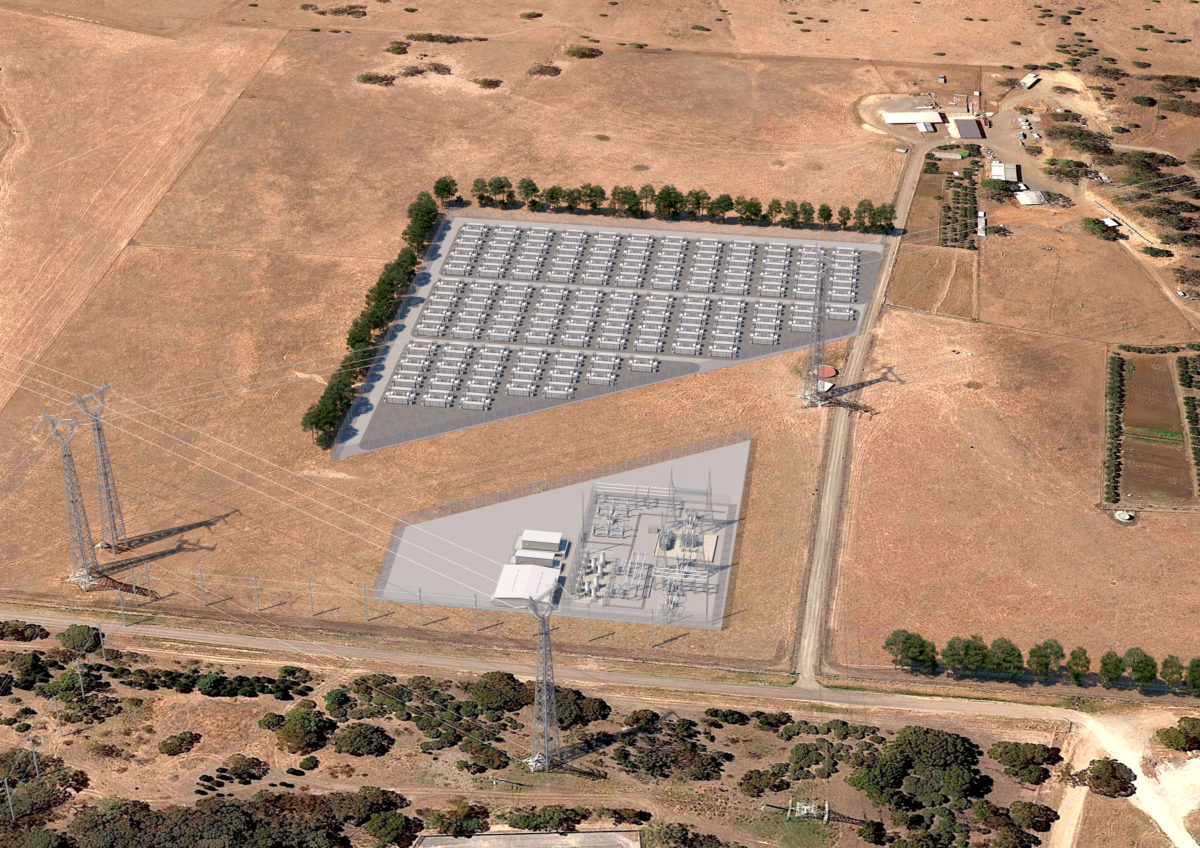Less than 12 months ago, analysts Cornwall Insight Australia (CIA) pegged Australia’s battery energy storage (BESS) pipeline at 7 GW, with a vast majority of that projection still firmly in the proposal phase. Eleven months later, and new CIA research shows the pipeline of proposed storage has grown enormously, to over 26 GW of announced projects. What is more, CIA believes the technical lifetime of BESS assets has increased in that time too.
Growing pipeline
The last year has seen no shortage of announcements and proposals. EnergyAustralia is progressing its plans for what it calls the ‘world’s biggest battery’, the Wooreen Energy Storage System, a 350 MW / 1.4 GWh battery to be built in place of the retiring Yallourn coal-fired power station in Victoria’s Latrobe Valley, though that might not be the biggest by the time it is build considering Neoen announced plans to build a 500 MW/1 GWh big battery west of Sydney, and fellow gen-tailer Origin plans to develop a 700 MW/2.4 GWh battery storage system at the site of its Eraring coal generator in the NSW Hunter region.
Just yesterday, Maoneng has secured approval for its 225 MWp / 450 MWh Gould Creek Battery project near Adelaide, South Australia, an addition to the 240 MWp/480 MWh big battery in Victoria’s Mornington Peninsula that the company announced in July.
Last month, Sydney-based Genex Power inked a deal with Tesla to develop the 50 MW/100 MWh Bouldercombe Battery Project in Queensland (QLD). And indeed the QLD government itself has announced plans to install five large-scale, network-connected batteries, with a combined capacity of 40 MWh in regions across the state as part of a community battery trial.
Over in Western Australia (WA) Italy-headquartered energy storage specialist New Horizons Ahead has been awarded the contract to build a 100 MW/200 MWh battery at the site of the decommissioned Kwinana Power Station, near Perth.
In September, Edify Energy was granted development approval from the Townsville City Council for a 1 GW green hydrogen and battery project, and in the same month AGL got the tick of approval from the New South Wales state government for its 50 MW/100 MWh battery project in Broken Hill. And renewable energy developer Elliott Green Power received approval to develop a 75 MW battery at its Susan River Solar Farm in regional QLD.
And the enormous growth in the BESS pipeline shouldn’t come as a surprise. In its new paper — Battery Storage — The New, Clean Peaker — released in April, the Clean Energy Council (CEC) amassed a battery of evidence that large-scale BESS has become the superior solution to spreading energy generated by solar and wind throughout any day, and instantly responding to peak energy needs in the National Electricity Market (NEM) for long and short durations.
Extended lifetime
On top of this massive increase in CIA’s projection, CIA is also seeing the expected technical lifetime of BESS assets increasing, from a 10-15 year lifetime only a few years ago, to up to 15-20 years today (dpending on warranties and cycling requirements).
As a result, CIA has also increased its Frequency Control Ancillary Services (FCAS) price forecast from 15 to 20 years, aligning it with the increase in the lifetime of BESS assets.
“FCAS currently makes up a significant proportion of most storage business cases” said CIA principal consultant Ben Cerini. “Understanding each service’s price drivers and expected price changes will affect future project connection size and duration and the optimal time for refurbishment and extension planning. The extended duration of the curves allows new project developers to better understand the potential future FCAS cost liabilities for their assets, for a more significant portion of their operational life, to better reflect actual future costs.”
This content is protected by copyright and may not be reused. If you want to cooperate with us and would like to reuse some of our content, please contact: editors@pv-magazine.com.









2 comments
By submitting this form you agree to pv magazine using your data for the purposes of publishing your comment.
Your personal data will only be disclosed or otherwise transmitted to third parties for the purposes of spam filtering or if this is necessary for technical maintenance of the website. Any other transfer to third parties will not take place unless this is justified on the basis of applicable data protection regulations or if pv magazine is legally obliged to do so.
You may revoke this consent at any time with effect for the future, in which case your personal data will be deleted immediately. Otherwise, your data will be deleted if pv magazine has processed your request or the purpose of data storage is fulfilled.
Further information on data privacy can be found in our Data Protection Policy.